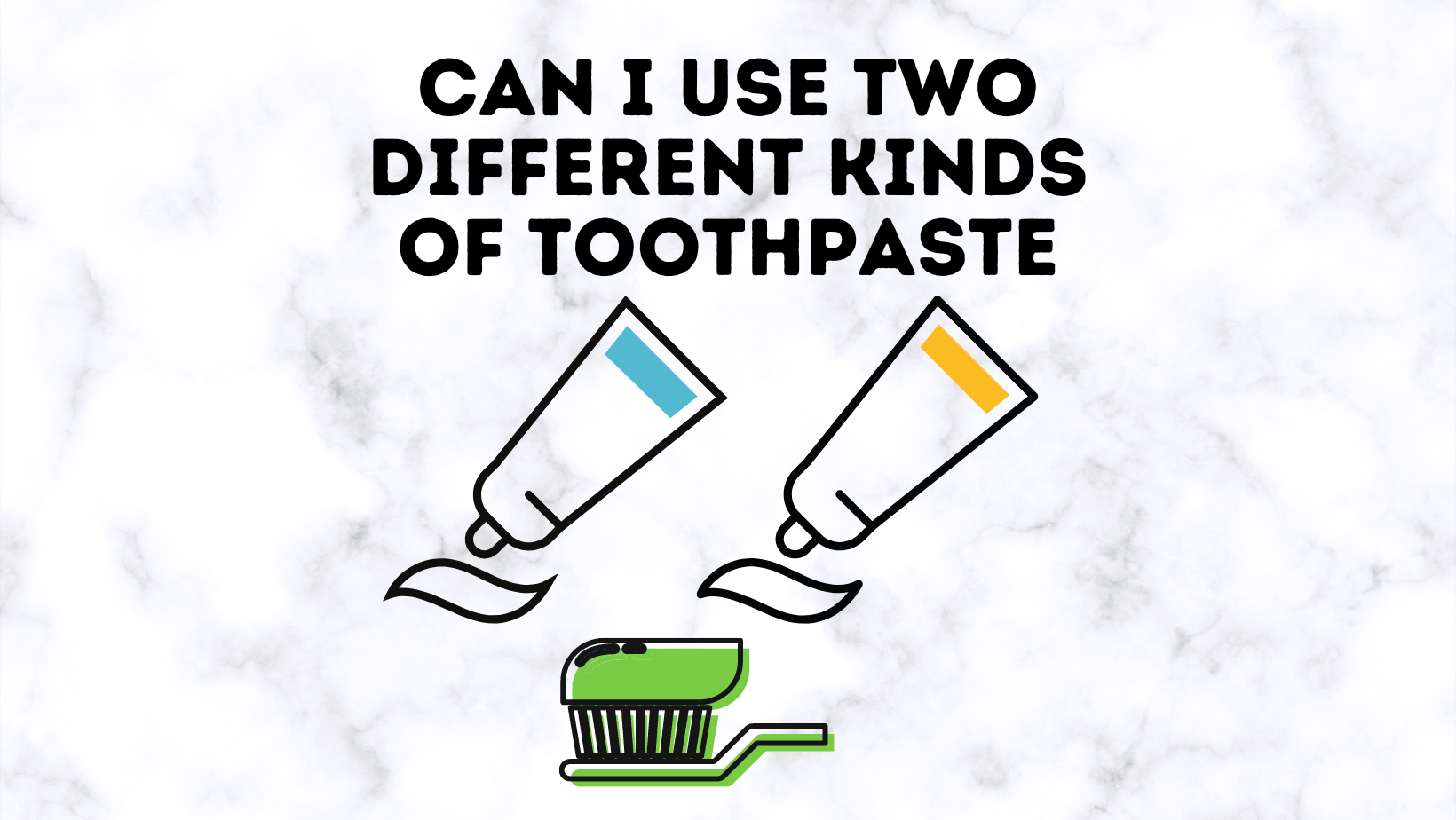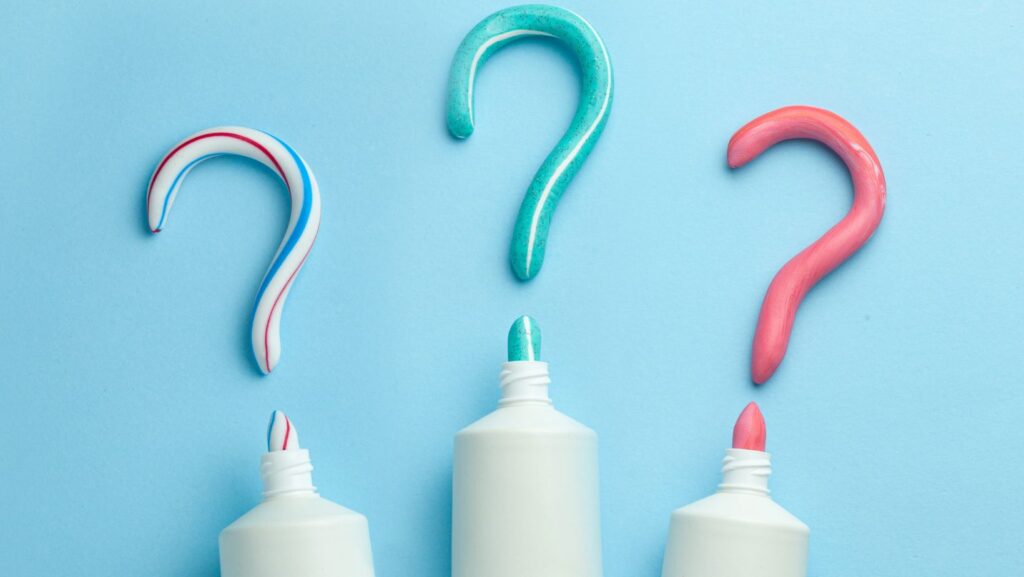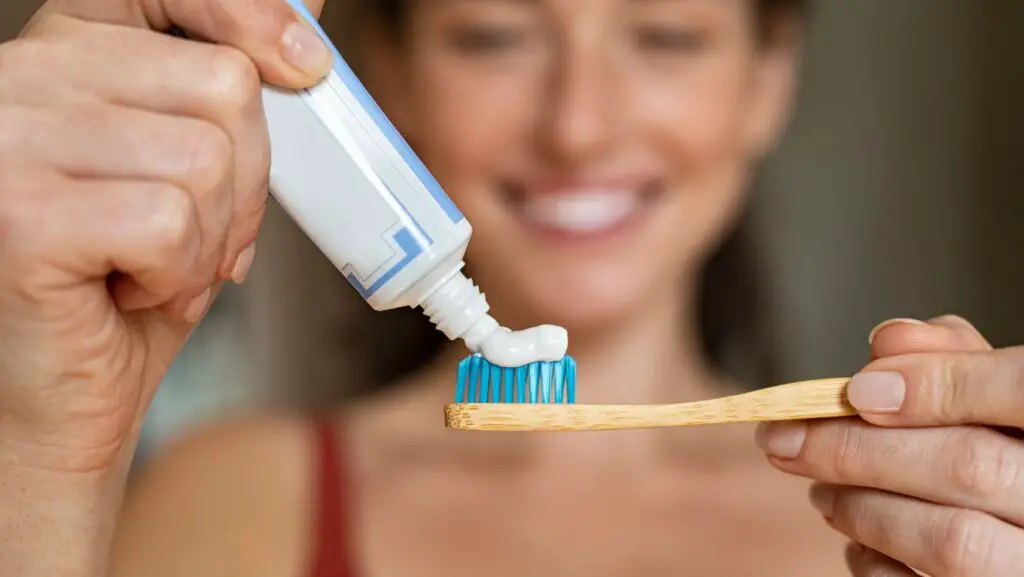
A healthy oral and dental care routine involves Brushing, Flossing, and Mouth washing twice a day. Using the right brushing technique and suitable toothpaste are other considerations for those healthy teeth and gums. But the question here is, “Can We Use Two Different Kinds of toothpaste Interchangeably”?
Many of you must already be using two different kinds of toothpaste simultaneously or interchangeably. Many individuals even switch to different kinds of toothpaste every month, while a lot of them stick to one for years. And whichever among them you are, you are doing right anyway.
Join us to learn more about the implications of using two different types of toothpaste. It may seem like a simple preference to many, but the topic has so much to learn about. This article explores the potential benefits and risks of using different kinds of toothpaste in a routine. Our ultimate goal is to inform readers about the choice of their toothpaste and how it can impact their overall dental and oral health. Let’s continue:
Table of Contents
Is It Okay To Use 2 Different Brands Of Toothpaste?
Yes, typically, it is okay to use two different brands of toothpaste interchangeably. It should not pose any significant health risks. However, it is important to consider that the ingredients in both toothpastes aren’t harmful or potentially conflicting. Some ingredients in two different toothpaste formulations may have adverse reactions as they might not interact well when used together.
It is also important to consider the recommended dosage of Fluoride and check varying concentrations of actives. In addition, before using two different brands of toothpaste, it is important to read any specific instructions or warnings mentioned on the packaging of both kinds of toothpaste. There can be a few kinds of toothpaste with some specific usage guidelines. And if those guidelines don’t align with the other toothpaste brand, avoid using two brands together.
Is It Okay To Switch Between Toothpaste Frequently?
Yes, if you are switching between different kinds of toothpaste frequently is usually acceptable and safe. In fact, dentists and oral health experts often suggest trying different toothpaste formulations in order to treat specific oral health needs.
However, if you are switching between toothpaste frequently that too without dentists’ advice, here are a few things you need to know:
When switching between different toothpaste, ensure that each of them is compatible. Go through their list of ingredients and check if any of the ingredients would interact negatively.
Understand the benefit of different active ingredients and choose your toothpaste set accordingly. If you often use different toothpaste interchangeably, make the active ingredients that target your oral health concerns.
When switching between different toothpaste, you may experience a brief adjustment period. It is temporary and typically of no harm. However, if the transition period makes you uncomfortable, stop using that toothpaste immediately.
Is Mixing Two Different Brands Of Toothpaste Effective And Safe?
Mixing two different toothpaste brands can be effective and safe as long as you aren’t facing an issue. However, there isn’t enough scientific evidence that mixing two different toothpaste brands is effective or superior.
Toothpaste formulations are designed with specific ingredients and concentrations. Every different toothpaste type includes a different set of ingredients. While mixing two types of toothpaste, you never know if you are combining ingredients that can impact adversely.
In general, using a single type of toothpaste at a time is ideal. Doing so will ensure that you are using a toothpaste that has undergone testing and is safe and efficient. However, when you mix two different types of toothpaste, you never know if the ingredients in both of them are reacting negatively to your dental health.

Is It True That All Toothpaste Is The Same?
No two kinds of toothpaste are the same at all. Every brand uses its specific formulation (s), combining different ingredients for specific benefits. While all toothpaste is designed to clean and protect teeth, their active ingredients, texture, and flavors will still differ. Even if two kinds of toothpaste have similar ingredients, the amount and concentration of those ingredients can differ.
In fact, Fluoride is a very common ingredient in toothpaste, but the amount of Fluoride in different types of toothpaste can differ. Remember, no two brands use the same formulation in their toothpaste. Brands undergo rigorous testing and meet safety and quality standards set by dental associations.
Does It Matter What Brand Of Toothpaste You Use?
No, it doesn’t necessarily matter which brand of toothpaste you use as long as the toothpaste meets your dental care requirements. Not even dentists or dental associations would recommend any specific toothpaste brand over others.
When choosing the right toothpaste, the most crucial aspects are the formulation and the active ingredients. It is crucial to focus on what’s inside the toothpaste formula over which brand sells it.
Should I Use Different Toothpaste For Morning And Night?
Using different toothpaste for morning and night is a personal choice, but it may offer benefits. You can definitely use two different kinds of toothpaste for your morning and nighttime brushing routines. However, it is important to consider that the type of toothpaste you are using aligns with your dental and oral needs.

Here are some tips for choosing Morning and Night toothpaste.
Morning Toothpaste:
- Choose a toothpaste that has flavors and is refreshing enough to make your breath pleasant. Target toothpaste that has antibacterial agents or mouthwash components for fighting against odor-causing bacteria. You can choose toothpaste with mint, citrus, or herbal flavors.
- Choose the one with Whitening properties and ingredients like hydrogen peroxide or baking soda.
Night Toothpaste:
- If you are prone to gum inflammation or sensitivity, choose toothpaste that focuses on gum health.
- Choose toothpaste that offers sensitivity relief and can help soothe sensitivity while you sleep. Toothpaste with ingredients like potassium nitrate or strontium chloride is designed for the same.
- Choose a toothpaste with mild flavors that cannot interrupt your sleep.
- Look for toothpaste that offers tooth enamel repair and protection. Ingredients like fluoride and calcium aid in remineralization and are ideal for nighttime use.
Do You Need To Change Your Toothpaste Over Time?
While there isn’t any restriction on changing toothpaste over time, doing so can have benefits. As long as you use Fluoride toothpaste recommended by American Dental Association (ADA), you can use it indefinitely.
However, if your dental care needs have evolved, you must switch the toothpaste and pick one that suits your concerns. Individuals who underwent certain dental treatments or procedures can also switch toothpaste, though only after dentists’ recommendations.
It is ideal for changing toothpaste over time only if advised by a dentist or important for dental care. However, for individuals who have a habit of switching to new toothpaste formulations now and then, it isn’t particularly of any great help.
Which Type Of Toothpaste Shouldn’t Be Used In Long Run?
While most toothpastes are safe for long-term use, selective ones are not. Using Whitening toothpaste, in the long run, can lead to tooth sensitivity or enamel erosion. Similarly, Tartar Control toothpaste, in the long run, isn’t safe for everyone. Prolonged usage of toothpaste with harsh abrasives can wear down tooth enamel.
It is worth noticing that one should only go for toothpaste approved by the dental association. Also, for dentist-recommended toothpaste, it is important to ask the duration for which you may use that toothpaste.
Bottom Line…
Overall, there is no scientific evidence supporting the use of two different toothpaste interchangeably. It is better to pick a toothpaste (or ask your dentist) that suits your oral health needs and stick to it.

Hi, This is Lyn, I suffer from dental sensitivity for a very long time. PowerToothpaste.com is where I share my views of various toothpaste brands, along with tips on how to use toothpaste and what to look for when purchasing.
